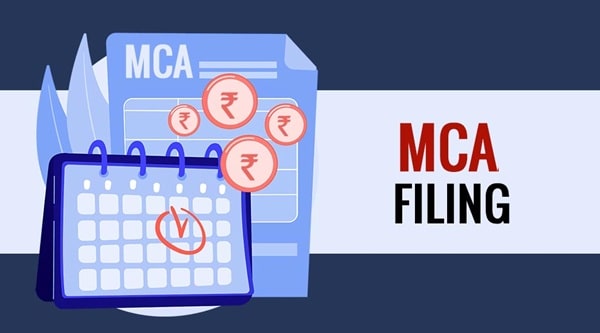Introduction:
As a project manager, you must have knowledge about contract management as part of your duties and why it is important. Because when projects are outsourced to third parties and outside contractors, organisations always have been subjected to risk binding with defaulting and misleading the direction of running projects.
According to Word Commerce and Contracting Study, companies lose around 9% of their annual turnover due to poor contract mismanagement. So here, contracts are inevitable in project management; they offer legal protection through agreement drafts, which clearly state the expectations, the timeline of the projects, each vendor’s roles and responsibilities, and payment terms between all parties involved in the project.

There are three types of project contracts in Project Management. Getting knowledge about this helps to reduce uncertain escalations, better risk management, improve healthy relationships between contractors, vendors and clients, and transparent accountability.
Factors affecting the Selecting Type of Project Contracts:
When selecting project contracts, there are some key considerations that need to be kept in mind.
- Scope of the project
- How are the parameters of the projects outlined
- Cost and Price analysis reports
- Project delivery timelines, such as the urgency of the project, the performance period
- How frequently changes happen
- Industry standards about preferring contracts
- Risk management and mitigation
- How statement of work defined
To learn about the basics of different types of contracts, you should focus on the “Procurement Management” section of the CAPM Certification Course.
What are the Types of contracts in Project Management::
In this article, we can see the project contract types and how it impacts your project, and when to use them.
Generally, there are three types of bilateral agreement contracts available in project management, that are.
- Fixed Price (FP) Contracts
- Cost-Reimbursable (CR) Contracts
- Time and Materials (T&M) Contracts
Enrol with PMP Certification training to learn details about different contract types and their real-world applications based on situations.
Fixed Price (FP) Contracts
Fixed Price contracts are legal agreements between organizations and contractors accepting the fixed pricing or costing, irrespective of market price fluctuations throughout the project cycle. It is always a safer side for organizations as they bear low risk, but sellers face the risk of price variations. This is great for the project’s risk register but not so great for the project budget. Here, the contractor estimates the total cost and agrees to complete the project within the timeline and budget.
Pros:
- Budget-friendly agreement and organisation has complete awareness of project cost
- The deals process such, as bidding and negotiations, are simple and easy to implement
- These types of contracts protect clients from cost overturn and unexpected overcharges.
Cons:
- The contractor can only work within the defined scope of the project, no more experimental steps need to be taken because of budget constraints.
- In case of any unexpected circumstances, or if project delays, contractors are not liable to take responsibility.
- Possibilities of a dispute over scope creep if handling charges are defined properly.
- Pre-preparations take longer to attain accurate pricing of the project.
Cost-Reimbursable (CR) Contracts
A cost reimbursement contract (CRC) is a deal where one party covers another party’s project expenses. The total amount paid depends on the real costs of the work.
The company promises to pay the contractor for the costs that are allowed. The contractor also earns a fee or profit on top of that. The company keeps an eye on the contractor’s costs and bills. The final price is usually decided once the work is done.
The project owner takes on most of the risk. They have to cover all the contractor’s real costs. If the project ends up costing more than expected, that’s on them. So, the risk mainly falls on the person paying for everything.
Pros
- You can change the project’s scope and costs as it goes, which is great for complex projects with changing needs.
- Contractors get paid for their allowable costs, which lowers their financial risk if unexpected issues arise.
- Since contractors aren’t stuck to a strict budget, they can focus on delivering great work.
- Clients can benefit from the contractor’s knowledge and resources for the best results.
- Good communication about costs and project updates is encouraged between clients and contractors.
- If contractors find cheaper solutions, they can pass the savings on to clients.
Cons
- It’s always hard to predict the final price of a project, which can lead to an over budget.
- Possibilities of contractors might not try to keep costs down. Because they get paid back for all allowed expenses.
- Companies need to keep a close eye on the project and do regular checks to manage costs.
- There’s a lot of paperwork and tracking involved, which adds to the workload.
- Organisations and contractors might face disputes about which expenses are allowed.
Time and Materials (T&M) Contracts
A Time and Materials (T&M) contract agreement, a company pays a contractor for the actual time they work on a project. They also cover the costs of materials needed to finish the project. Both of these costs are agreed upon ahead of time, similar to how freelancers work.
This kind of contract is great for projects that might change a lot or where it’s hard to figure out the final cost from the start. Sometimes, people refer to it as Unit Price Contracts. They mix features of both fixed-price and cost-reimbursable contracts. T&M contracts are usually used for smaller projects.
Pros
- T&M contracts are so flexible that they allow you to make changes in project score even if it’s in the progress pace, this is a great option to fit in unexpected situations, too.
- Clients can access detailed project information like labor and material costs, this helps to get a clear idea about what they are spending for.
- A detailed, feasible study is not required while following this contract, so work can be commenced at any moment, especially in urgent situations.
- A Fair compensation structure followed, as contractors get paid what actually work done, also benefiting companies can avoid unnecessary financial loss.
- When the company is not sure about the project details, T&M contracts allow them to make changes easily. They don’t have to draft the whole contract and make multiple revisions.
Cons
- There are possibilities for some project managers struggling to track labour and material costs.
- There is no fixed cost, while agreeing with the T & M contract can sometimes surprise clients with the final bill. To avoid disputes, keep detailed records and update customers regularly.
- There’s no fixed cost in the T&M Contract, which can possibly surprise clients with the final bill. To avoid disputes preventively, maintain all records transparently and keep informing customers regularly.
- T&M contracts mean customers pay by the hour. This can lead to more client oversight, which might stress the project managers. Sometimes, rushing to complete projects can cause possible escalations in projects.
Conclusion:
Each type of contract has its own pros and cons. The choice really depends on how complex the project is , how well it’s planned, and has a defined project scope. Picking the right contract type is important for a particular project and is always subject to deep feasible study before commencement. It helps keep costs, timelines, and quality on track for the project.

